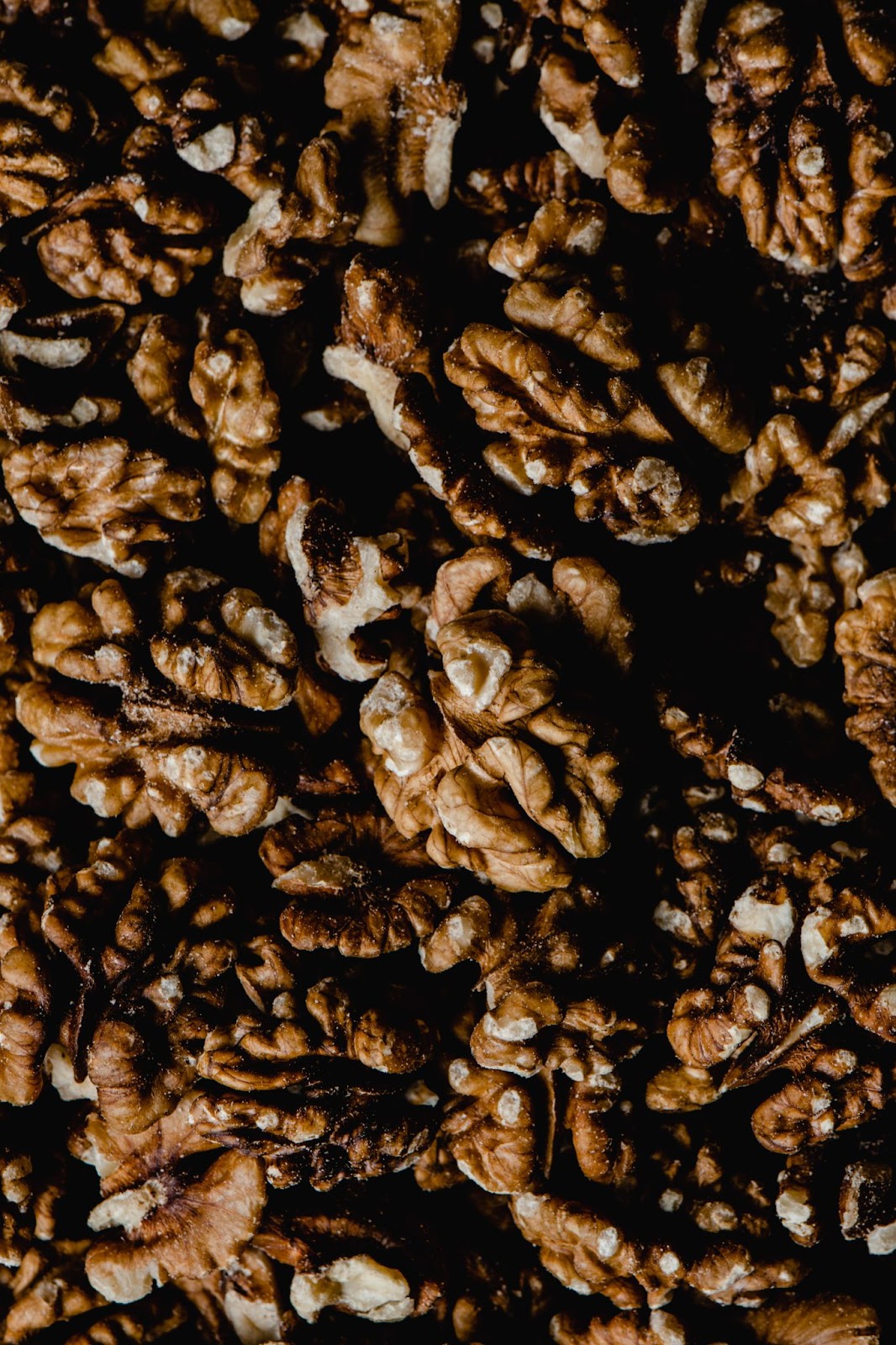15 Incredible Health Benefits Of Walnut
Looking to get fit with some great and healthy nuts. Let's enlighten you with the 15 most incredible benefits of walnuts.

In today’s competitive, fast-paced world, health is truly wealth. As we learn about commonly sourced superfoods, walnuts are gaining traction for their benefits. These amazing nutrient-dense foods are loaded with several essential nutrients (1). They contain some amounts of healthy fats, fiber, vitamins, minerals and antioxidants, making them excellent foods for maintaining a healthy lifestyle (1). They are also known to improve the overall heart health, reduce the chances of stroke, promote healthy brain function, help in weight management, and may even help prevent cancer (1),(2). The polyphenols in walnuts help in fighting oxidative stress and inflammation. Walnuts are also a super friendly gut food. They support the health of your microbiota and your gut. Read on to understand the health benefits of walnuts.
Nutritional Facts About Walnuts
To say that walnuts are just any nutritious food is an understatement. Walnuts are a great superfood it also has a wide range of essential nutrients, they are also rich in healthy fats, fiber, protein, vitamins, and minerals, making them an excellent food choice for maintaining holistic health and well-being. Here is a more detailed discussion of the nutritional facts about walnuts (1):
- Calories: 100 grams of walnuts provide around 654 calories. You don't even need to think before taking that bite.
- Protein: Walnuts are a good source of proteins which have around 15 grams of protein per 100 grams. This is a great source of protein.
- Fat: Walnuts are high in healthy fats, mainly polyunsaturated and monounsaturated fats.
- Carbohydrates: Walnuts contain a small number of carbohydrates, providing around 14 grams per 100 grams. An ideal food for people following a low-carbohydrate diet.
- Fiber: Walnuts are an excellent source of dietary fiber, with around 7 grams of fiber per 100 grams.
- Vitamins: this holy nut is a good source of several essential vitamins, including vitamin E, vitamin B6, thiamin, and folate. Vitamin E is another powerful antioxidant that helps to protect the body and is essential for energy metabolism and brain function. It also helps in skin improvement.
- Minerals: Walnuts have several essential minerals, such as magnesium, phosphorus, potassium, and zinc. These minerals play important roles in bone health, energy production, and immune function.
We all know that omega-3 fatty acids are essential to the body. Walnuts are one of the best sources of omega-3 fatty acids. They are also rich in antioxidants, which help to protect the body from oxidative stress and prevent cellular damage and can also reduce the risk of chronic diseases such as heart disease, cancer, and Alzheimer's disease (2).

15 Benefits of Walnuts:
While we have not spoken enough about the walnut, how can you forget that this amazing nut has beneficial properties:
- Improved Heart Health: Walnuts are rich in healthy fats, including omega-3 fatty acids, which are essential for maintaining heart health. Studies have shown that consuming walnuts regularly can help to reduce bad cholesterol levels. It also helps to lower blood pressure, and decrease inflammation in the body (3).
- Improved Brain Function: Studies have shown that omega-3 fatty acids can improve cognitive function, memory, and mood (2).
- Weight Management: walnuts may aid in weight management due to their high fiber and protein content, which may reduce overall calorie intake (2).
- Diabetes Management: Walnuts may also be beneficial for managing diabetes, as they have been shown to improve insulin sensitivity and thus reducing blood sugar levels (2).
- Cancer Prevention: Studies have indicated walnuts may help to prevent cellular damage and reduce the risk of cancer.
- Digestive Health: Walnuts help to improve the digestion of your stomach, reduce the risk of constipation, and enhance gut health.
- Bone Health: Walnuts are an excellent source of calcium and magnesium, which are important for maintaining strong bones.
- Skin Health: Want to prevent aging and have great skin. Having walnuts helps in sleeping the skin shiny and prevents premature aging.
- Immune Function: Walnuts may help to support immune function and reduce the risk of infections.
- Anti-inflammatory Properties: Walnuts due to their anti-inflammatory properties may help to reduce inflammation in the body.
- Liver Health: Studies have shown that walnuts may help to improve liver function and decrease the chances of fatty liver disease.
- Eye Health: Your eyes need vitamin E . Walnuts may help to protect the eyes from age-related damage and reduce the risk of cataracts.
- Energy Boost: Walnuts are a good source of protein and healthy fats, which may provide energy and help to reduce fatigue.
- Anti-Aging Properties: Walnuts may help to protect the body from cellular damage and slow down the aging process.
- Reduced Risk of Metabolic Syndrome: walnuts have been shown to reduce the risk of metabolic syndrome, including high blood pressure, high blood sugar, and obesity.
What Are the Side Effects of Walnuts
You may think walnuts are a super healthy food, but like any other food Walnuts also do have its side effects. Let's talk about some:
- If you are already allergic to nuts, walnuts can cause severe allergic reactions such as swelling, difficulty breathing, and anaphylaxis (5).
- Eating large amounts of walnuts may cause digestive problems such as bloating, gas,or loose motions. It's important to consume walnuts in moderation.
- Studies indicate walnuts are natural blood thinners. They may interact with certain medications such as aspirin, warfarin, and heparin. So choose wisely!
- As we know Walnuts are high in oxalates, there is a high chance it may increase the risk of kidney stones in some people
- While walnuts are a nutritious food, they are also high in calories and fat. Eating too many walnuts may contribute to weight gain if consumed in excess.
- Rancidity: Walnuts contain oils that can go rancid if not stored properly. It's important to store walnuts in an airtight container in a cool, dry place to prevent them from going rancid.
- Walnuts may be contaminated with aflatoxins. This is a toxin produced by certain fungi. They are toxic and can cause liver damage and cancer in high amounts. It's important to purchase walnuts from a reputable source and store them properly to prevent aflatoxin contamination (4).
How To Choose And Store Walnuts
Choosing and storing walnuts properly can help ensure their freshness and quality. If the walnuts are stored the correct way, the chances of spoilage are less. Here are some tips:
- When buying walnuts, look for fresh ones! Well, those that are well-sealed, and free of cracks, holes, or any other damage. You can also smell the nuts to make sure they are fresh and have not gone spoilt.
- Shelled walnuts may be easier to use and store, but the unshelled walnuts can last longer as the shell helps protect the nut.
- Walnuts must be stored in an airtight container in a cool, dry place, such as your pantry or cupboard. Avoid storing walnuts in the refrigerator or your freezer, as this can cause them to absorb odors from other foods.
- Keep walnuts away from moisture and light, it's important to keep them in a dry, dark place.
- it's best to use them within a reasonable timeframe to ensure their freshness and quality. Shelled walnuts have a shelf life of up to six months, while unshelled walnuts can mostly last up to a year.
- Before using walnuts, check for signs of spoilage such as a sour or rancid smell, mold, or discoloration.
By following these tips, you can choose and store walnuts properly to ensure their freshness and quality remain intact for longer periods of time.
Nutritional Walnuts Recipes
Here are 10 more delicious and nutritious walnut recipes:
- Walnut and Spinach and Mushrooms: Roast mushrooms in the oven, then stuff them with a mixture of spinach, chopped walnuts, feta cheese, and garlic. Sprinkle some salt to add taste.
- Walnut and Goat Cheese Salad: Combine some mixed greens, chopped walnuts, crumbled goat cheese, and a simple vinaigrette made with olive oil Mix it all together and enjoy this yummy summer salad.
- Walnut-Crusted Chicken Legs: Dip chicken legs in a mixture of beaten eggs, some mayo, and garlic powder, then coat in a mixture of crushed walnuts and breadcrumbs. Bake or fry until crispy and golden.
- Dark Chocolate Walnut Bars: Mix melted dark chocolate, chopped walnuts, and a splash of vanilla extract. Roll into balls and refrigerate. Ideal dessert for the winters.
- Maple Walnut Granola: Mix rolled oats, chopped walnuts, maple syrup, coconut oil, and a pinch of salt. Bake in the oven until golden and crisp.
- Walnut and arugula pesto: Blend arugula, walnuts, garlic, lemon juice, and Parmesan cheese in a food processor. Toss with your favorite cooked pasta for a flavorful meal.
- Blueberry Walnut Smoothie Bowl: Blend frozen blueberries, Greek yogurt, almond milk, and walnuts in a blender until smooth. Pour into a bowl and top with additional walnuts and fresh blueberries.
- Walnut and Sweet Potato Soup: Deep-roast sweet potatoes in the oven, then blend them with some vegetable broth, add chopped walnuts, and a dash of salt for a creamy and nutritious soup.
- Walnut and Date Energy Bites: Mix dates, walnuts, almond butter, and rolled oats in a food processor. Roll into balls and refrigerate for a healthy snack.
- Spicy Walnut and Chickpea Salad: Who doesn't love this combo! Get some roasted chickpeas, add the chopped walnuts, with diced avocado, onion and tomato, lime juice, honey, and chili powder. Mix it up and enjoy!

Conclusion
The reasons we love walnuts are innumerable. They are definitely the favorite choice for someone who is looking for overall well being. They are not only rich in healthy fats, fiber, protein, vitamins, and minerals. Walnuts have also proven to improve heart health, brain function, and overall well-being. While adding walnuts to your diet is as simple as sprinkling them on your salads, or blending them into smoothies, also incorporating them into your favorite recipes. They can also be roasted, raw, or baked into delicious dishes, walnuts are a delicious and nutritious addition to any healthy diet. Just remember to store them properly to maintain their freshness and quality, and be aware of any potential allergies or side effects before consuming them. With such an impressive nutritional profile and delicious taste,the benefits of walnuts make it a superfood worth including in your diet.
Sources :
1. The Scientific Evidence for a Beneficial Health Relationship Between Walnuts and Coronary Heart Disease
https://academic.oup.com/jn/article/132/5/1062S/4687242
2. Beneficial Effects of Walnuts on Cognition and Brain Health
https://www.ncbi.nlm.nih.gov/pmc/articles/PMC7071526/
3. Effects of Walnuts on Serum Lipid Levels and Blood Pressure in Normal Men
https://www.nejm.org/doi/full/10.1056/nejm199303043280902
4. Risks and Benefits of Increased Nut Consumption: Cardiovascular Health Benefits Outweigh the Burden of Carcinogenic Effects Attributed to Aflatoxin B1 Exposure
https://www.ncbi.nlm.nih.gov/pmc/articles/PMC5748805/
5. Walnut Allergy in Peanut-Allergic Patients: Significance of Sequential Epitopes of Walnut Homologous to Linear Epitopes of Ara h 1, 2 and 3 in Relation to Clinical Reactivity





 JOIN OUR WHATSAPP CHANNEL
JOIN OUR WHATSAPP CHANNEL







































































































